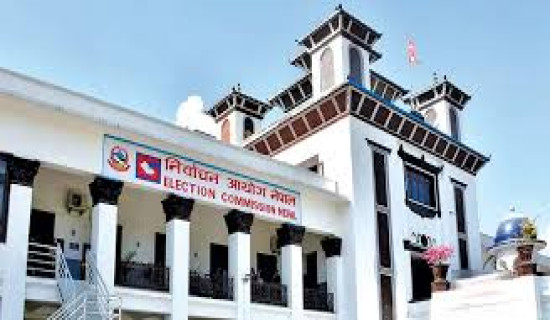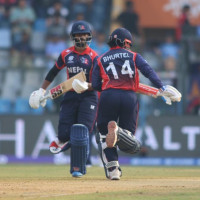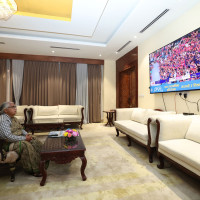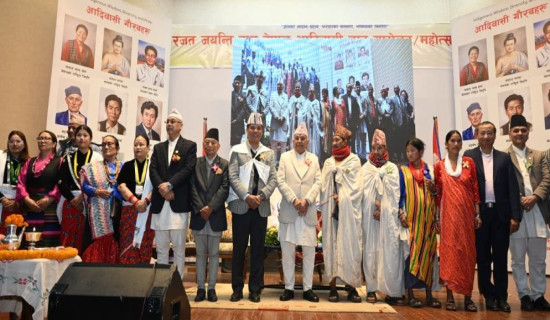- Monday, 9 February 2026
Bhaktapur outperforms neighbours in waste management
By Indira Aryal
Bhaktapur, Aug 19 : While Kathmandu stinks and Lalitpur reeks, Bhaktapur’s streets are clean. Heaps of garbage line the streets of the capital, choking its drains, but Bhaktapur Municipality has remained trash-free. And the question is, how?
The municipality manages its waste locally by segregating degradable and non-degradable in a compost plant. The municipality collects waste from every household two times a day and segregates it in the plant then manages degradable and sells non-degradable, said Chief Administrative Officer of the Municipality Krishna Giri.
The municipality has been doing its best to keep the city clean, but the scarcity of space for the landfilling of the solid waste and proper segregation of waste at the source has been an obstacle for the municipality, he said.
According to a 2019 research titled “Assessment of Solid Waste Management in Bhaktapur Municipality”, municipal household waste generation was found to be 0.093kg per capita per day which was chiefly composed of organic at 77 percent, 18 percent plastic, and three percent paper.
Urban settlements around the world face several barriers to managing municipal solid waste, but the municipality has been confronting difficulties in an appropriate or in sustainable way, the paper said. The municipality has been employing door-to-door collection methods for household waste. Tricycles with separate compartments for biodegradable and non-biodegradable waste are used for the collection of segregated waste, Giri said.
Major tourist areas in Bhaktapur receive collection services throughout the day. There is a separate provision of staff to pick up waste all day. These areas are also provided with dustbins to collect the waste so they remain clean all day.
According to Giri, they have provided roof-top gardening to the residents as well as waste at a nominal cost so that the households can utilize the waste produced from their house in their roof-top gardening. The hospitals in the municipality manage their waste on their own.
“The municipality collects the remaining waste from every household and segregates degradable and non-degradable and brings them to the compost plant. We sell non-degradable waste and generate income from selling it. The degradable waste also turns into compost through CNBN technology and we sell it for Rs. 20 per kilogram,” Giri said.
“Many mayors from elsewhere come to visit the waste management techniques to learn from us. Even though we are operating it on a small scale now, the municipality has been planning to expand it by finding land somewhere,” Giri informed.
Other municipalities give the responsibility to collect the waste to the private sector but the municipality has been mobilizing its staff for the process. This is also the reason why its streets are seen clean all the time, Giri added.








-square-thumb.jpg)








